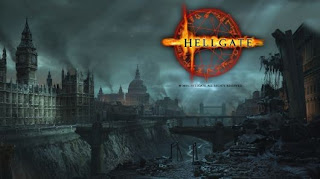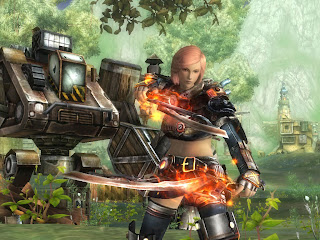MMORPG is an acronym for "massively multiplayer online role-playing games." It is a genre in computer gaming where the interaction among a huge number of players within the game's virtual world happens.
Just like in all other types of role-playing games, character roles, usually from a world of fantasy, are assumed by players who take control over many of the character's actions.
Aside from the number of players, MMORPGs can be distinguished from small multi-player RPGs and those played by single players by the persistent world of the game. The game still evolves and continues to exist even when the player is away from the game and not online. The data about the game is stored on a server or servers which are normally hosted by its publisher.
Across the globe, MMOs are being played by millions of avid fans. Revenues around the world for these virtual games surpassed the half-billion dollar mark in 2005. In 2006, consumer spending in the West on subscription MMORPGs rose to more than $1.4 billion. As of March 2011, over 11 million people are subscribed to the extremely popular MMORPG World of Warcraft.
Traditional fantasy themes are what most of the well-liked MMORPGs are based on. The games are usually set in a universe similar to that of classic RPGs such as Dungeons and Dragons. Hybrid themes are used by some that either substitute or combine elements of fantasy with those of crime fiction, sword and sorcery, steampunk or science fiction. Even thematic materials from the legends, myths, fairy tales, comic books, anime, and other genres are used by some MMORPGs. The elements are developed using scenes and similar tasks that involve monsters, quests, and loot.
In almost all MMORPGs, a primary goal is the development of the player's character. This is done through gaining experience or exp which can be increased by completing tasks, storylines or by defeating various enemies or bosses. Once the right amount of exp has been gained, the character that the gamer controls will level up. Leveling up involves making the character stronger through learning more skills or increasing innate traits such as health, strength, intelligence, agility, etc.
As the character levels up, equipment becomes more and more important. This includes clothes, armor, weapons and accessories. While low level equipment is quite easy to acquire, high level equipment is typically expensive and much more rare.
One of the most popular activities is players teaming up with other players to be able to achieve a more optimal progression rate. They can form a group or party to kill boss monsters or navigate through a dangerous dungeon. This type of content is called cooperative play but the opposite, competitive gaming, also exists and is likewise extremely popular among MMO fans.
While cooperation is needed to complete difficult tasks, friendly competition between individuals or groups is also encouraged. Player vs player or PvP can take the form of 1 vs 1 dueling, guild vs guild battles or faction vs faction wars.
In conclusion, MMO games are basically virtual worlds where players can create a character so they can indulge in many adventures and have fun.
In 2012, there are two big upcoming releases that are expected to dominate the market. These are Bioware's new MMO game, Star Wars: The Old Republic, and Guild Wars 2 by ArenaNet. You can find the latest and freshest news about these and other upcoming MMOs at the
2012 Best Free MMORPG Games List. This article was written by Mira Nolan, a writer for MMO Worlds, a gaming portal and blog for
free to play MMOGs.
























